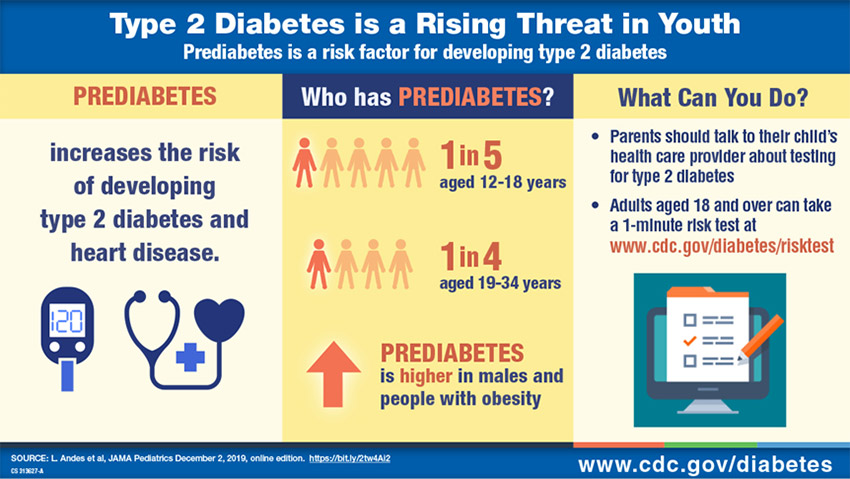When Alyson Weiner, MD, decided to complete a fellowship in both Pediatric Endocrinology at NewYork-Presbyterian/

Source: Image courtesy of L. Andes et al, JAMA Pediatrics December 2, 2019, online edition.
Transition Care
“There is a strong interest at Weill Cornell Medicine and across the country for a unique and focused approach for caring for adolescent young adult (AYA) patients with diabetes.” — Dr. Alyson Weiner
“I am one of a few pediatric-trained physicians across the country to have unique training in Obesity Medicine,” says Dr. Weiner, Assistant Attending Pediatrician at NewYork-Presbyterian Komansky Children’s Center.
The extra training, skills, and credentials Dr. Weiner gained in her two fellowships have allowed her to focus on identifying children with risk factors for T2DM to intervene with treatment and prevent complications, as well as manage care during the important transition period from adolescence to adulthood—a time when many AYAs struggle.
“An AYA with diabetes may have more aggressive disease and be at higher risk for early micro- and macro-vascular complications. We have to make sure these adolescent patients receive the medical care they deserve at this challenging age,” says Dr. Weiner.
Novel Therapies
Dr. Weiner recently published in Therapeutics and Clinical Risk Management alongside her adult medicine colleagues at Weill Cornell Medicine on the potential use of tirzepatide for the treatment of early stage T2DM. The novel twincretin—a dual glucose-dependent insulinotropic polypeptide (GIP) / glucagon-like peptide 1 (GLP-1) receptor agonist—is currently approved for the treatment of T2DM in patients ≥18 years. In the review article, Dr. Weiner and colleagues discuss evidence from the available clinical trials.
“I think it is a really exciting time—until 2019, only metformin and insulin were approved for pediatric T2DM. Multiple diabetes medications used in adults, including tirzepatide, are now being studied for use in pediatrics. For now, we are using it in our patients 18 years and over, with promising results,” says Dr. Weiner.
Dr. Weiner sees immense potential for expanding treatment options for obesity and insulin resistance in the unique AYA population. “There is interest in being more aggressive with AYA diabetes because of the early complications associated with weight gain and diabetes,” notes Dr. Weiner.
Currently, tirzepatide is awaiting FDA approval for treatment of adults with obesity. “The majority of patients with T2DM have obesity,” explains Dr. Weiner. “Medications like the once-weekly tirzepatide injection improve both diabetes control and excess weight gain.”
Multidisciplinary Diabetes Team
The multidisciplinary diabetes team at NewYork-Presbyterian Komansky Children’s Center includes pediatric endocrinologists and nurse practitioners to closely manage type 1 and type 2 diabetes, nutritionists to help with diet modification, as well as child psychologists and social workers to help with medication adherence, AYA transition needs, and access to medical care.



